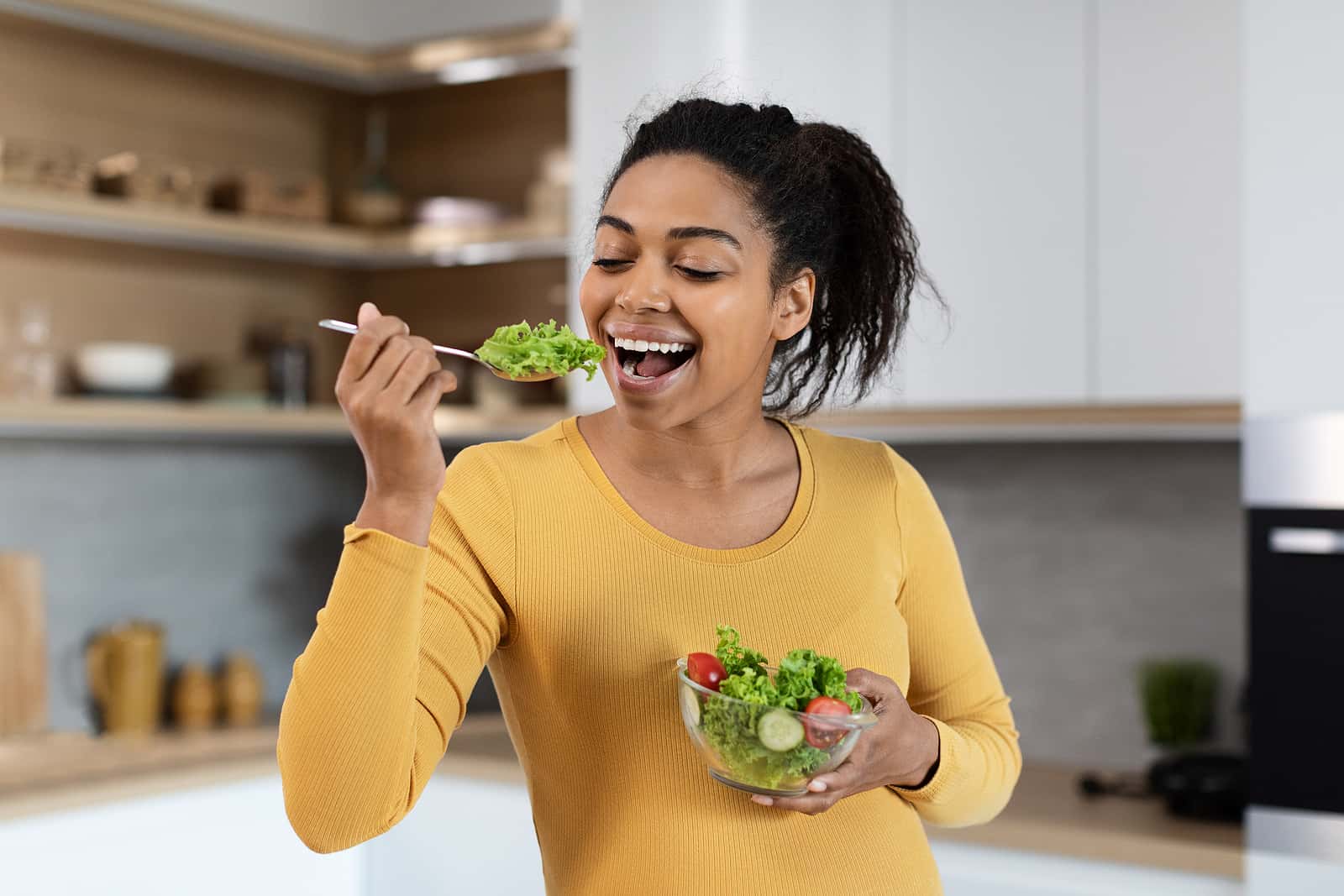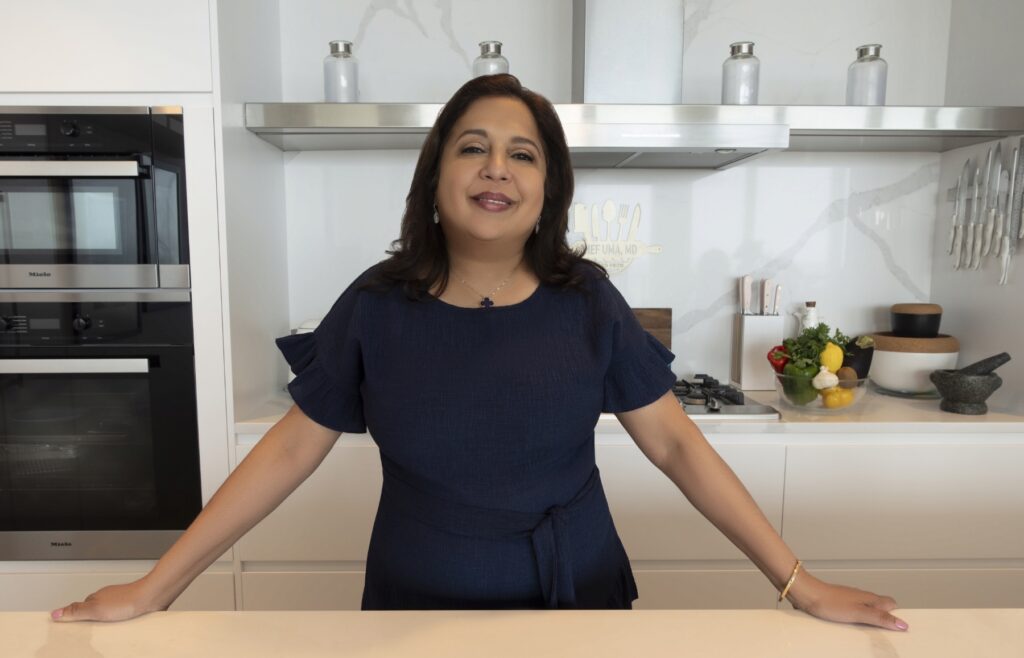
How to Calm Your Mind with Food
Plenty of issues in the public eye could well make anyone anxious. Some people suffer more than others, however. What we feed our gut microbes–and ourselves–can make a big difference. In this episode, a nutritional psychiatrist and professional chef explains how to calm your mind with smart food choices.
You may want to listen through your local public radio station or get the live stream at 7 am EDT on your computer or smart phone (wunc.org). Here is a link so you can find which stations carry our broadcast. If you can’t listen to the broadcast, you may wish to hear the podcast later. You can subscribe through your favorite podcast provider, download the mp3 using the link at the bottom of the page, or listen to the stream on this post starting on April 29, 2024.
Can You Really Calm Your Mind with Food?
Our guest, Dr. Uma Naidoo, found that success can be stressful. Her first book, This Is Your Brain on Food, was popular and she was in great demand as a speaker. She was invited to present her work at a conference in London and to meet then-Prince Charles. The strenuous schedule diverted her from her usual routines, and she ended up cooking less and grabbing a quick bite more often. This practice actually increased her anxiety, until she realized that she was trapped in a vicious cycle and needed to break it. She describes how she did that with an approach anyone could try.
Breaking the Comfort Food Habit:
Many people have specific foods that they turn to when they start to feel upset or anxious. In our household, salty, crunchy foods like crackers or tortilla chips are favorites. But ice cream, cookies or candy are popular in other homes. Ultra-processed foods like these don’t nourish our gut microbes. On the contrary, they increase the inflammation in our digestive tracts, which in turn can disrupt the balance of our beneficial brain chemicals.
Most people have heard of the neurotransmitter serotonin. A large class of medications used to treat depression or anxiety, the selective serotonin re-uptake inhibitors or SSRIs, links serotonin and mood. However, few of us realize that most of our serotonin is actually made in the gut rather than the brain. No wonder the food we eat can affect our mood! Some can help us feel better, but others have a negative impact. We might assume that artificial sweeteners would be helpful because they have so few calories, but in fact they can disrupt our gut microbes, undermine weight loss efforts and make us feel more anxious.
Building an Anti-Anxiety Eating Plan to Calm Your Mind:
To create an anti-anxiety eating plan, we need to start by cutting back on ultra-processed foods and finding healthier alternatives. For example, instead of chicken nuggets from a fast-food counter, cooking actual chicken pieces at home provides cleaner protein with less salt and fat, and with practice, it doesn’t take very long.
An anti-anxiety plate should include at least 50 percent leafy greens and colorful veggies. The other half should include healthy whole grains, clean protein such as the aforementioned chicken, fish, egg or tofu, and healthy fats such as nuts, seeds, avocado or extra-virgin olive oil. This could be used to cook the food or to dress it. Learning to nourish yourself with delicious, healthful food choices is a skill that should itself help you feel less anxious.
This Week’s Guest:
Uma Naidoo, MD, is a board-certified Harvard Nutritional Psychiatrist, professional chef, and nutritional biologist. She is also the Founder and Director of the first and only hospital-based Nutritional and Metabolic Psychiatry Service in the United States, at Massachusetts General Hospital (MGH). She also serves as the Director of Nutritional Psychiatry at MGH Academy and serves on the faculty at Harvard Medical School, the Harvard Department of Nutrition, and is an instructor at The Cambridge School of Culinary Arts. Dr. Naidoo is the author of This Is Your Brain on Food. Her latest book is Calm Your Mind with Food. Her website is https://umanaidoomd.com/

Uma Naidoo, MD, author of Calm Your Mind with Food
Listen to the Podcast:
The podcast of this program will be available Monday, April 29, 2024, after broadcast on April 27. You can stream the show from this site and download the podcast for free.

